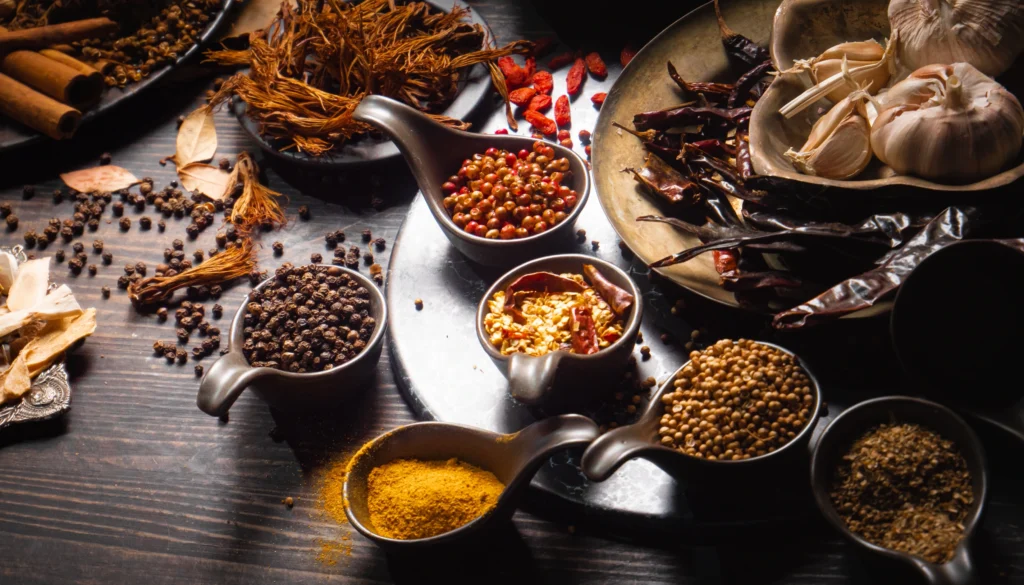
Indonesia has long been recognized as the “Spice Islands,” a historic center of the global spice trade. Today, the Indonesian spice market remains a significant player in international commerce, exporting premium spices such as vanilla, nutmeg, cloves, and cinnamon. In 2023, Indonesia’s exports of coffee, tea, maté, and spices reached a value of $1.61 billion, with the United States being the largest market, accounting for $319 million or 19.8% of total exports (trendeconomy.com). The spice industry is a crucial component of Indonesia’s economy, contributing substantially to export revenues and supporting millions of farmers across the archipelago. As the demand for organic and sustainably sourced spices continues to grow worldwide, Indonesia is well-positioned to strengthen its role in the global spice trade.
The Current State of Indonesia’s Spice Industry
Indonesia ranks among the world’s largest producers of nutmeg, cloves, and cinnamon. The country exports spices to key markets such as the United States, Europe, India, and the Middle East. Despite a 14.1% decrease in export value compared to 2022, the Indonesian spice industry remains robust (trendeconomy.com). The increasing preference for organic and sustainably sourced spices has heightened global interest in Indonesian products. Additionally, government initiatives and policies support spice farmers and exporters, ensuring the industry remains competitive in the international market.
Major Spice-Producing Regions in Indonesia
Key spice-producing regions include Maluku, known for nutmeg and cloves; Sumatra, particularly West Sumatra, for cinnamon cultivation; and Java, especially the Pandeglang area in Banten, which has significant vanilla cultivation potential (artsandculture.google.com, moderndiplomacy.eu). Traditional farming techniques are still widely used, often combined with modern processing methods to enhance quality and efficiency. Farmer cooperatives play a significant role in improving product quality and ensuring that spices meet export standards.
Challenges and Opportunities in the Market
Despite its strengths, Indonesia’s spice industry faces several challenges. Supply chain inefficiencies, climate change, and competition from other spice-producing nations pose significant hurdles. However, there are also considerable opportunities, including the rising global demand for organic spices, increasing government support for sustainable farming practices, and the digitalization of trade processes, which can enhance market access and efficiency (trendeconomy.com).
The Future of Indonesia’s Spice Trade
The Indonesian spice industry is evolving with innovations in processing and the development of value-added spice products. Expansion into emerging markets and the establishment of new trade agreements are also crucial for sustained growth. Strengthening branding and marketing efforts will further highlight Indonesia’s premium spice quality, reinforcing its position as a top supplier in the global spice trade.
Conclusion
Indonesia’s spice market remains a cornerstone of global spice trade. With its rich history, diverse spice offerings, and commitment to sustainability, the country is well-equipped to expand its presence in international markets. By addressing challenges and seizing new opportunities, Indonesia can secure its reputation as a global leader in the spice industry.


